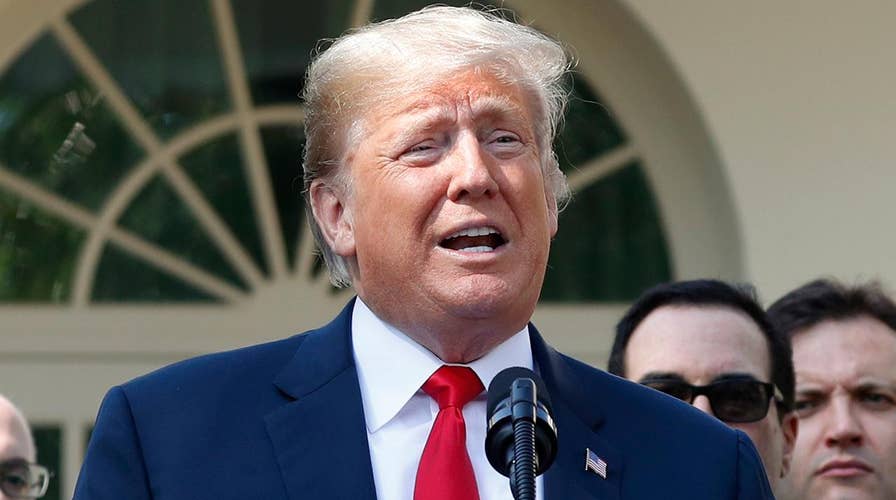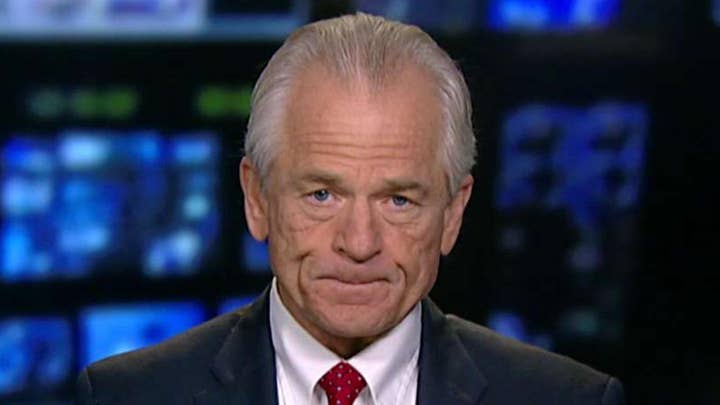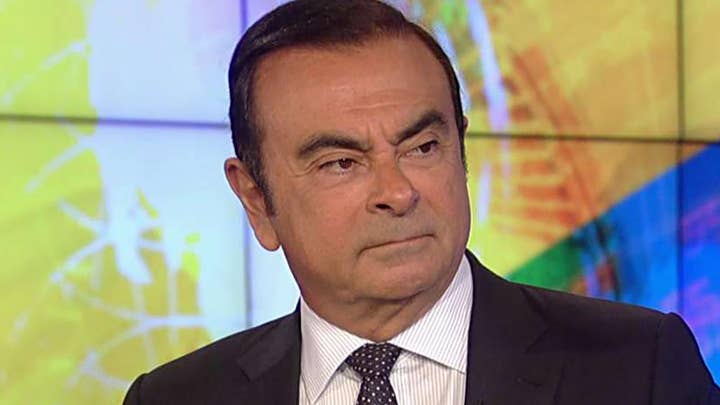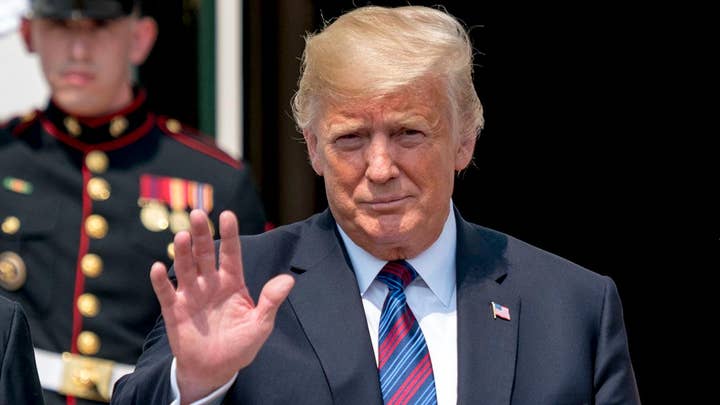Trump announces the United States Mexico Canada Agreement
President Trump says is the USMCA is the biggest trade deal in U.S. history, designed to replace the 1994 NAFTA pact.
President Trump on Monday announced a hard-fought trade pact with Canada and Mexico meant to replace the North American Free Trade Agreement, saying the deal would bring a "new dawn" for American auto workers.
"This is a truly extraordinary agreement for the United States, Canada and Mexico," Trump said in the Rose Garden, surrounded by his trade-negotiating team.
Trump spoke after it emerged that Canada and Mexico had agreed to a pact the administration has dubbed the “United States Mexico Canada Agreement,” or USMCA.
Before the USMCA is implemented, though, it must be approved by Congress. While Trump was confident in its chances, he hedged his bets over concerns with gridlock on Capitol Hill.
"Anything you submit to Congress will be trouble," he said.
In a joint statement, U.S. Trade Representative Robert Lighthizer and Canadian Foreign Affairs Minister Chrystia Freeland said the agreement “will strengthen the middle class, and create good, well-paying jobs and new opportunities for the nearly half billion people who call North America home.”
Canada was brought back into the fold after weeks of negotiations, with a deal announced shortly before a midnight deadline.
Trump also heralded the agreement in a series of Monday morning tweets.
“It is a great deal for all three countries, solves the many … deficiencies and mistakes in NAFTA, greatly opens markets to our Farmers and Manufacturers, reduces Trade Barriers to the U.S. and will bring all three Great Nations together in competition with the rest of the world. The USMCA is a historic transaction!” he tweeted.
Trump has regularly blasted NAFTA as disastrous for the U.S. economy.
"I have long contended that NAFTA was the worst trade deal the U.S. maybe ever made," Trump said in his speech.
Some lawmakers immediately expressed relief that Canada had been reinstated in the regional trading bloc. “I am pleased that the Trump administration was able to strike a deal to modernize NAFTA with both Mexico and Canada,” said Senate Finance Chairman Orrin Hatch, R-Utah. “NAFTA is a proven success.”
Democrats were skeptical, however.
“Any trade agreement proposal must be judged by whether it improves the wages, working conditions and well-being of America’s workers and farmers,” House Democratic Leader Nancy Pelosi said in a statement. “… Democrats will closely scrutinize the text of the Trump Administration’s NAFTA proposal, and look forward to further analyses and conversations with stakeholders.”
The agreement reached Sunday gives U.S. farmers greater access to the Canadian dairy market. But it keeps a NAFTA dispute-resolution process that the U.S. wanted to jettison and offers Canada protection if Trump goes ahead with plans to impose tariffs on cars, trucks and auto parts imported into the United States.
Canada, the United States’ No. 2 trading partner, was left out when the U.S. and Mexico reached an agreement last month. Mexico agreed to provisions requiring at least 40 percent of a car to be built in countries where auto workers earn at least $16 an hour to qualify for duty-free benefits.
Mexico's future foreign relations secretary said the new trade agreement between Mexico, the United States and Canada "provides certainty for financial markets, investment and job creation."
Marcelo Ebrard also acknowledged Monday "some of the new regulations, like the changes in the content rules, may pose some challenges for companies to adapt to."
Outgoing President Enrique Pena Nieto said via Twitter on Monday the deal negotiated over the last 13 months "achieves what we proposed at the beginning: a win-win-win agreement."
Pena Nieto leaves office Dec. 1. He'll be replaced by President-elect Andres Manuel Lopez Obrador, who tapped Ebrard to be his foreign relations secretary.
The Trump administration officially notified Congress of the U.S.-Mexico trade agreement on Aug. 31. That started a 90-day clock that would let Pena Nieto sign the new pact before he leaves office Dec. 1.
Trump had threatened to go ahead with a revamped NAFTA — with or without Canada.
It was surprising that the United States found it easier to cut a deal with Mexico than with Canada, a longtime ally with a high-wage economy similar to America's. But relations between Ottawa and Washington soured. In the aftermath of a disastrous G-7 summit in Quebec in June, Trump called Prime Minister Justin Trudeau "weak" and "dishonest."
Trump and Trudeau spoke on the phone on Monday.
Fox News' Jennifer Bowman and The Associated Press contributed to this report.







